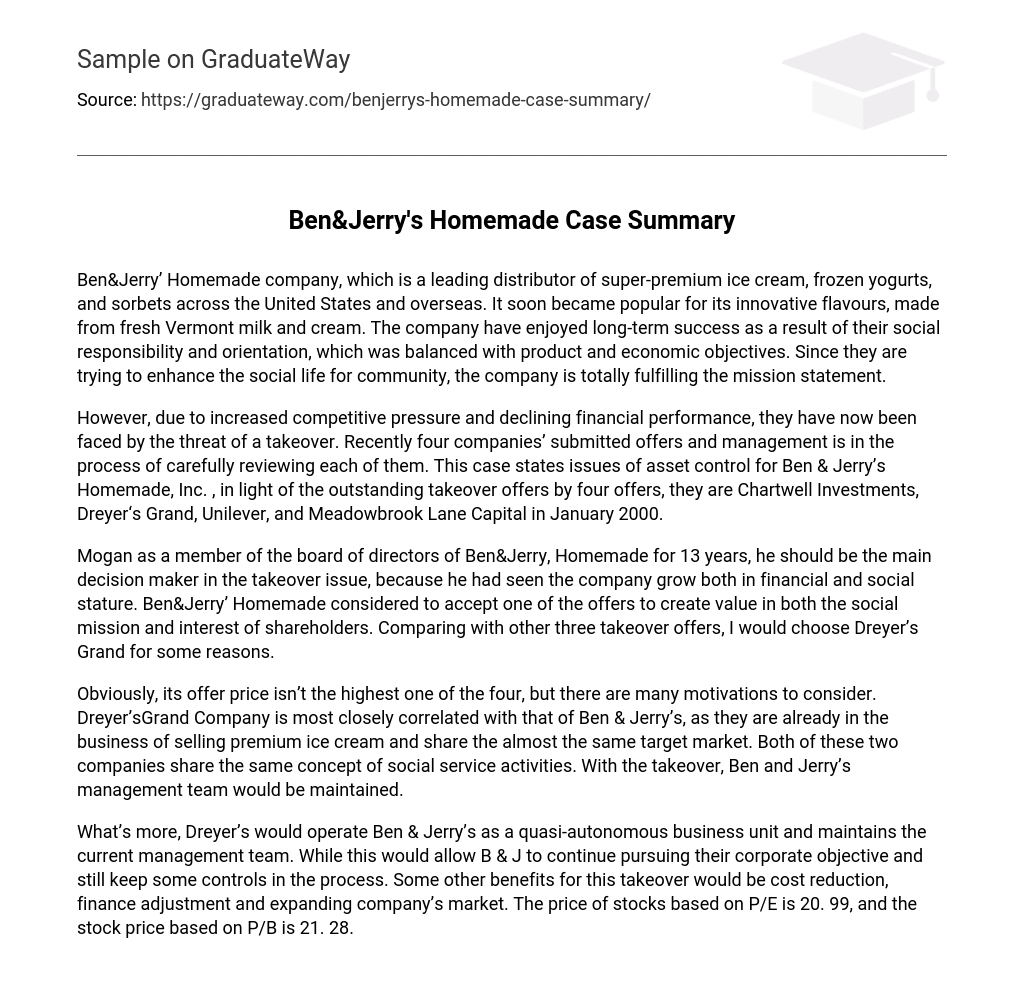Ben&Jerry’s Homemade company is a prominent distributor of super-premium ice cream, frozen yogurts, and sorbets in the United States and abroad. Their reputation grew quickly due to their creative flavors crafted from fresh Vermont milk and cream. The company has achieved enduring success by achieving a balance between social responsibility, product quality, and economic goals. By prioritizing the improvement of community social life, the company wholly fulfills its mission statement.
Ben & Jerry’s Homemade, Inc. is currently at risk of being taken over due to rising competition and financial decline. The management is currently evaluating takeover offers from four companies: Chartwell Investments, Dreyer’s Grand, Unilever, and Meadowbrook Lane Capital. This case revolves around the issue of asset control for Ben & Jerry’s Homemade, Inc., in relation to the January 2000 takeover offers.
Mogan, a board member of Ben&Jerry’s Homemade for 13 years, is anticipated to have a significant impact on the decision-making process concerning the takeover. His extensive experience with the company’s financial and social development makes his input extremely valuable. Ben&Jerry’s Homemade is receptive to considering one of the offers in order to improve both their social mission and shareholder interests. Out of the four takeover choices available, my preference lies with Dreyer’s Grand for various reasons.
Although the offer price of Dreyer’s Grand Company is not the highest among the four, there are several reasons to consider it. Dreyer’s and Ben & Jerry’s are closely related, as they both sell premium ice cream and target the same market. They also share similar social service activities. If Dreyer’s takes over Ben & Jerry’s, the current management team will be retained.
In addition, Dreyer’s will operate Ben & Jerry’s as a semi-independent division led by the current management team. This setup enables B & J to maintain their corporate objectives while still having some supervision. Furthermore, this purchase offers various benefits including decreased costs, financial alignment, and expanded market presence. The stocks have a price-to-earnings ratio (P/E) of 20.99 and a price-to-book ratio (P/B) of 21.28.





